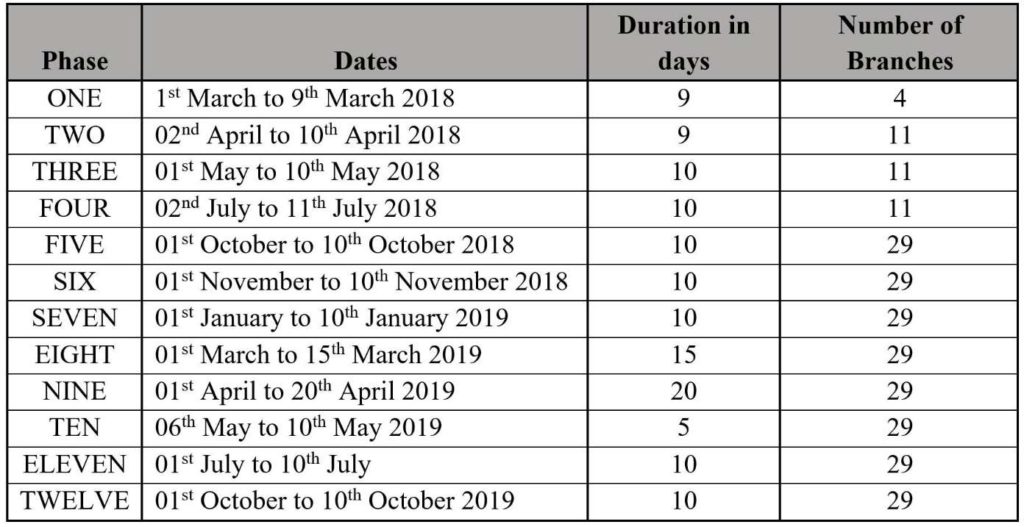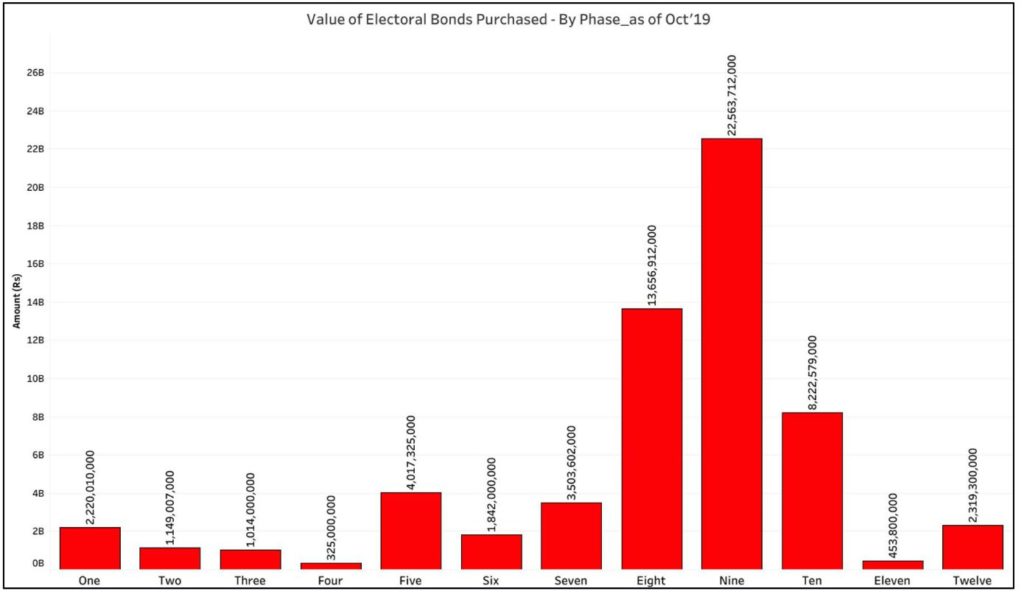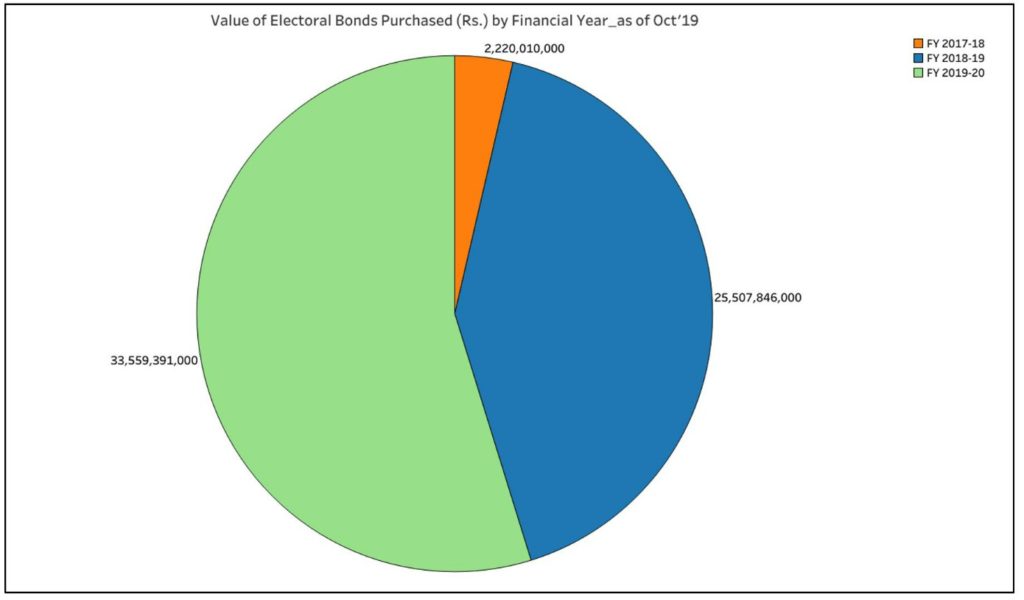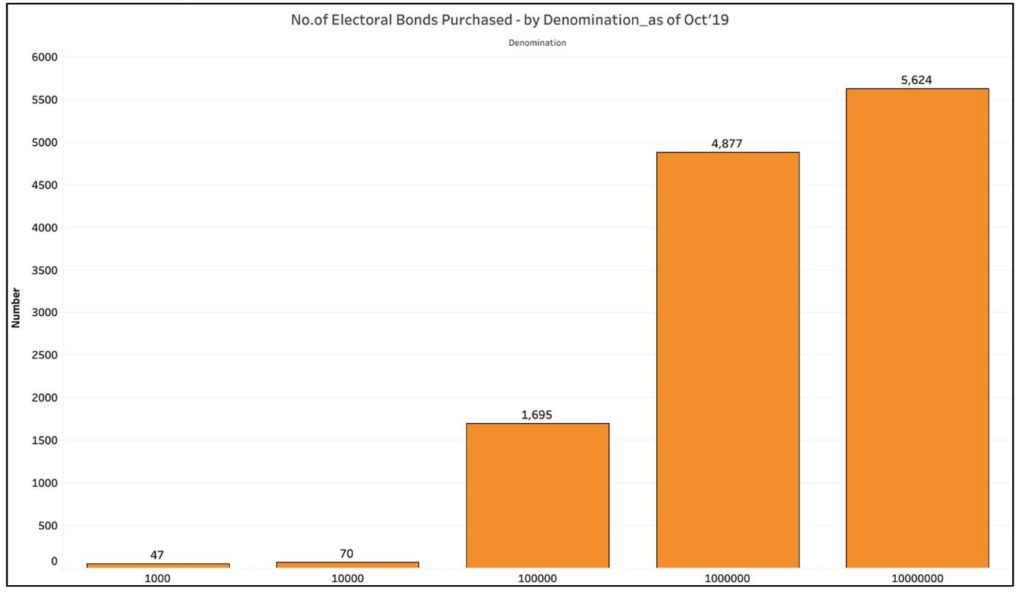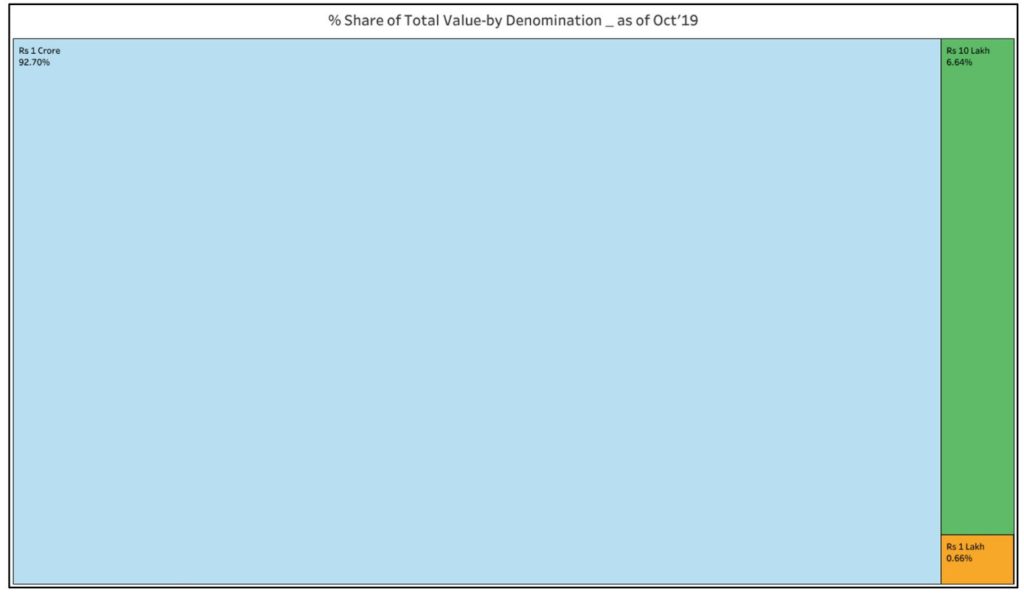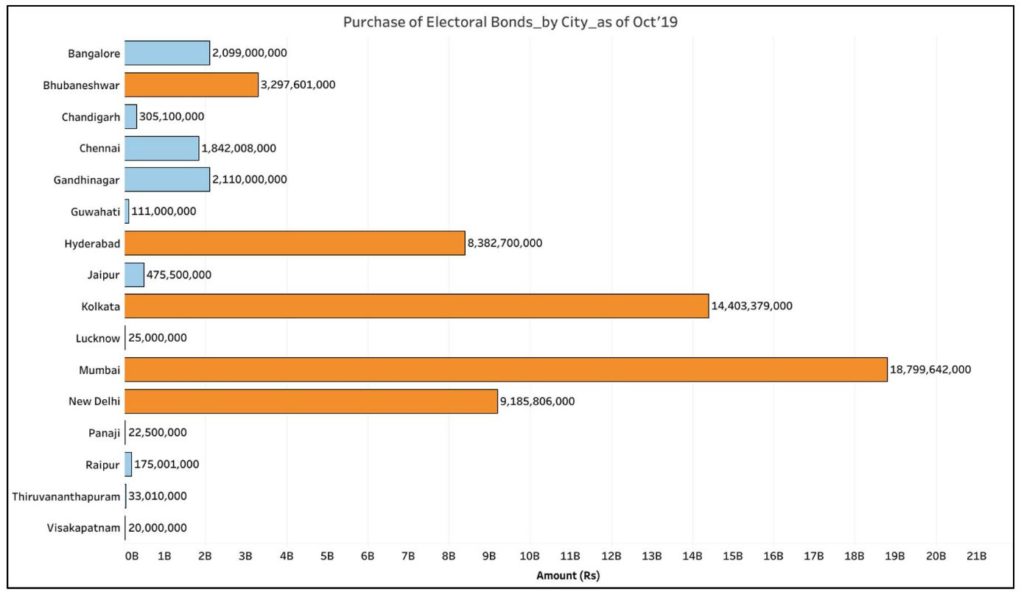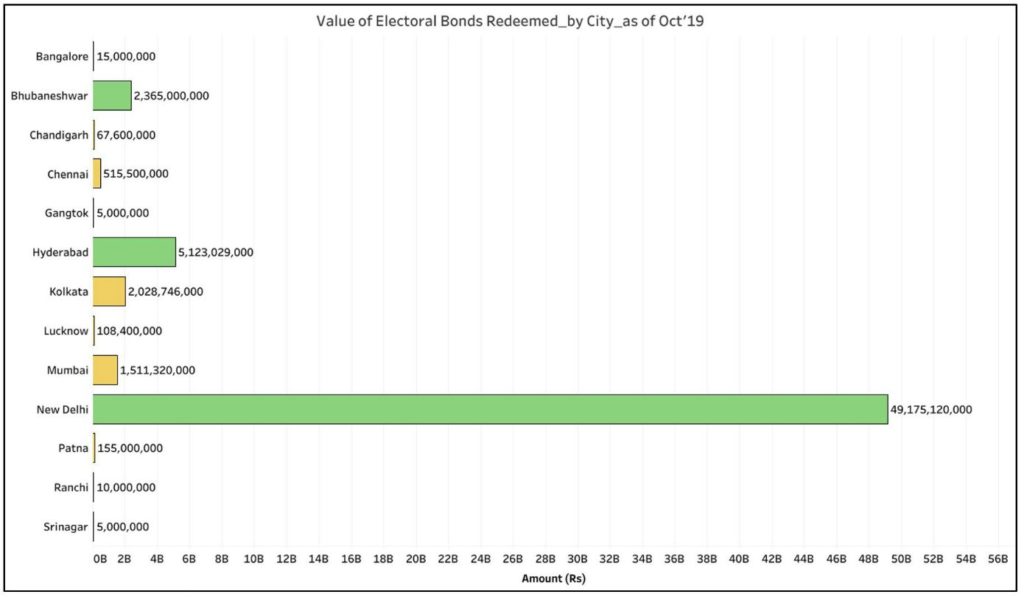The Supreme Court of India refused to grant the State Bank of India extra time to furnish information about the buyers of electoral bonds (EBs) and the political parties that redeemed them. Instead, the court threatened the bank with penal action if it continued to defy its orders, leaving the country’s largest bank facing consequences it deserved.
On its website, SBI proudly proclaims itself as a Fortune 500 company with a rich heritage and legacy of over 200 years, boasting a 25% market share and serving over 480 million customers through a vast network of 22,000-plus branches and more than 65,600 ATMs. However, inexplicably, this public sector banking behemoth adopted the ‘Please miss, my dog ate my homework miss’ style of argument while pleading its inability to comply with the transparency directives of the court.
In February, a five-judge constitution bench of the court reiterated the fundamental right of every voter to know all information that is essential to make an informed choice on the polling day. This right covers details of who gives how much money to which political party, among other information, the court held unanimously.
Rather than burning the midnight oil to collate information on buyers and redeemers of EBs to hand over to the Election Commission of India (ECI) for publication on its website, SBI requested an extension until the end of June, when the Lok Sabha elections would be done and dusted.
Having conducted business with SBI for over a decade as a student, I am left questioning its assertion of being ‘the most trusted bank by Indians through generations,’ especially in light of its excuse that it holds records about buyers and recipients of EBs in separate silos, claiming that matching the information between them is a time-consuming exercise.
Six years ago, noted journalist Poonam Agarwal wrote an investigative piece to discover that every EB of every denomination has a unique identification number printed on it which is visible only under UV light. Is it not commonsensical to make the assumption that this unique number would be recorded against every denomination of EB sold to prospective donors and matched against every EB redeemed by political parties? This is an essential safeguard to prevent fake EBs from entering the system, especially in our country where counterfeiting currency notes, coins and stamp papers is almost like a cottage industry.
One would think, the digitalised banking processes of SBI would make matching of donor and redeemer data as easy as clicking a few buttons to let the computers spit out the nexus. Artificial Intelligence is not required for this exercise at all.
Or did we read much more than what the Supreme Court had specifically recorded as directives to SBI and ECI, towards the end of its February judgment? Was our expectation of being able to discover who donated how much to which political party through the EB route unrealistic? For now, all that we will get to know from SBI through the ECI is, who bought EBs of which denomination and when, and the date and denomination-wise encashment of EBs by political parties.
The Supreme Court directed SBI to disclose only this much in February. Yet, SBI was reluctant to disclose even this information until after the Lok Sabha elections.
What did the Supreme Court say about the voter’s right to know?
SBI’s latest pleadings have actually brought to light a significant element of disconnect between the Supreme Court’s theory about the ‘voters’ right to know’ and the specific directives it gave in February.
The following extracts from the court’s judgment summarise its well-constructed theory regarding the voter’s right to know, based on existing case law:
“Electoral democracy in India is premised on the principle of political equality which the Constitution guarantees in two ways. First, by guaranteeing the principle of “one person one vote” which assures equal representation in voting. The Constitution prescribes two conditions with respect to elections to seats in Parliament which guarantee the principle of “one person one vote” with respect to every voter and amongst every State…”
“Second, the Constitution ensures that socio-economic inequality does not perpetuate political inequality by mandating reservation of seats for Scheduled Castes and Scheduled Tribes in Parliament and State Assemblies…”
“The Constitution guarantees political equality by focusing on the ‘elector’ and the ‘elected’. These two constitutional precepts foster political equality in the following two ways. First, the Constitution mandates that the value of each vote is equal. This guarantee ensures formal political equality where every person’s vote is accorded equal weightage. Second, the Constitution ensures that members of socially marginalized groups are not excluded from the political process. This guarantee ensures (a) equality in representation; and (b) equality in influence over political decisions.”
“However, political inequality continues to persist in spite of the constitutional guarantees. One of the factors which contributes to the inequality is the difference in the ability of persons to influence political decisions because of economic inequality. In a politically equal society, the citizens must have an equal voice to influence the political process. We have already in the preceding section elucidated the close association of money and politics where we explained the influence of money over electoral outcomes. However, the influence of money over electoral politics is not limited to its impact over electoral outcomes. It also spills over to governmental decisions.”
“It must be recalled here that the legal regime in India does not distinguish between campaign funding and electoral funding. The money which is donated to political parties is not used by the political party only for the purposes of electoral campaign. Party donations are also used, for instance, to build offices for the political party and pay party workers. Similarly, the window for contributions is not open for a limited period only prior to the elections. Money can be contributed to political parties throughout the year and the contributed money can be spent by the political party for reasons other than just election campaigning. It is in light of the nexus between economic inequality and political inequality, and the legal regime in India regulating party financing that the essentiality of the information on political financing for an informed voter must be analyzed.”
“Economic inequality leads to differing levels of political engagement because of the deep association between money and politics. At a primary level, political contributions give a “seat at the table” to the contributor. That is, it enhances access to legislators. This access also translates into influence over policy-making. An economically affluent person has a higher ability to make financial contributions to political parties, and there is a legitimate possibility that financial contribution to a political party would lead to quid pro quo arrangements because of the close nexus between money and politics. Quid pro quo arrangements could be in the form of introducing a policy change, or granting a license to the contributor. The money that is contributed could not only influence electoral outcomes but also policies particularly because contributions are not merely limited to the campaign or pre-campaign period. Financial contributions could be made even after a political party or coalition of parties form Government. The possibility of a quid pro quo arrangement in such situations is even higher. Information about political funding would enable a voter to assess if there is a correlation between policy making and financial contributions.”
“For the information on donor contributions to be relevant and essential, it is not necessary that voters have to take the initiative to peruse the list of contributors to find relevant information which would enable them to cast their vote effectively. Electronic and print media would present the information on contributions received by political parties, and the probable link between the contribution and the licenses which were given to the company in an accessible format. The responses to such information by the Government and political parties would go a long way in informing the voter…”
“In view of the above discussion, we are of the opinion that the information about funding to a political party is essential for a voter to exercise their freedom to vote in an effective manner. The Electoral Bond Scheme and the impugned provisions to the extent that they infringe upon the right to information of the voter by anonymizing contributions through electoral bonds are violative of Article 19(1)(a).” (emphasis supplied)
The above extracts taken from the February 2024 judgment make it amply clear that the foundational basis of voters’ right to know is not just the right to freedom of speech and expression guaranteed under Article 19(1)(a) of the Constitution but also the necessity to create a level playing field for all kinds of voters, both haves and have-nots.
Transparency of political party funding is essential to contain, if not completely eliminate the influence of moneybags on policymaking and other decisions of the government. The court did not stop at just that. It went on to compare the various legal modes of contributing funds to political parties in terms of degrees of transparency in the following words:
“When these three methods of political contribution (electronic transfer other than electoral bonds, contribution to Electoral Trust, and Electoral Bonds) are placed on a continuum, transfer through electronic means (other than electoral bonds) would be placed on one end and Electoral Bonds would be placed on the other end. A voter would receive complete information about contributions made above twenty thousand to a political party in the case of electronic transfer made directly to a political party other than through electoral bonds.
With respect to contributions through electoral bonds, the voter would not receive any information about financial contributions in terms of Section 29C of RPA as amended by the Finance Act…” (emphasis supplied)
So, the minimum standard of transparency that the apex court adopted in the course of its theorisation of voters’ right to know is “complete information about contributions made above twenty thousand [Rs 20,000] to a political party”. This is not all. While striking down the amendment that was made to the Companies Act, 2013 in order to facilitate anonymous donations to political parties by corporate entities, the court observed as follows:
“This Court in the interim order dated 31 October 2023 in the specific context of contributions made by companies through electoral bonds prima facie observed the voter would be able to secure information about the funding by matching the information of the aggregate sum contributed by the Company (as required to be disclosed under Section 182(3) of the Companies Act as amended by the Finance Act) with the information disclosed by the political party. However, on a detailed analysis of the Scheme and the amendments we are of the opinion that such an exercise would not reveal the particulars of the donations because the Company under the provisions of Section 182 and the political party are only required to disclose the consolidated amount contributed and received through Electoral Bonds respectively. The particulars about the political party to which the contributions were made which is crucial to the right to information of political funding cannot be identified through the matching exercise….” (emphasis supplied)
The above extract makes it abundantly clear that the court intended for voters to have complete information about contributions, enabling them to match donors with the political parties that receive donations from corporates. There is no indication in the theorization that the court intended otherwise for contributions made by individuals through EBs. However, the directives issued by the court at the end of its judgment fall woefully short of these two standards – namely, providing “complete information about contributions made above twenty thousand to a political party” and enabling voters, through complete transparency, to “match the donor with the political party.”
The court’s relevant directives for our discussion are reproduced below:
“In view of our discussion above, the following directions are issued:
- The issuing bank shall herewith stop the issuance of Electoral Bonds;
- SBI shall submit details of the Electoral Bonds purchased since the interim order of this Court dated 12 April 2019 till date to the ECI. The details shall include the date of purchase of each Electoral Bond, the name of the purchaser of the bond and the denomination of the Electoral Bond purchased;
- SBI shall submit the details of political parties which have received contributions through Electoral Bonds since the interim order of this Court dated 12 April 2019 till date to the ECI. SBI must disclose details of each Electoral Bond encashed by political parties which shall include the date of encashment and the denomination of the Electoral Bond;
- SBI shall submit the above information to the ECI within three weeks from the date of this judgment, that is, by 6 March 2024;
- The ECI shall publish the information shared by the SBI on its official website within one week of the receipt of the information, that is, by 13 March 2024;…” (emphasis supplied)
The above directions, in fact, call for the disclosure of donor and recipient information separately, leaving voters with no mechanism to match the two categories of information. This omission prevents voters or the media from analysing and reporting on who paid how much to which political party through the EB route. It is respectfully submitted that this represents a shortcoming in the court’s directives when compared with the standards it set for the “voters’ right to know” in its theorization of that principle.
What other information is likely to be black-boxed by SBI?
Nowhere in the February 2024 judgment is there a listing or even a cursory mention of the kinds of information that SBI collected while selling EBs.
The EB Scheme, which the Union finance ministry’s Department of Economic Affairs notified in the official gazette contained only one proforma, namely, the application form which a prospective donor was required to fill up while buying EBs.
In the course of the implementation of the EB Scheme, SBI collected much more information than the name, address, telephone/fax/email of the applicant. For example, in the case of individual donors, applicants were required to fill out a form that provided details of the “Controlling Person” or “Beneficial Owner” on whose behalf the EBs were being purchased from SBI. (see Images 1 to 3 below).

Image 1: Controlling Person/Beneficial Ownership Proforma issued by SBI for individual EB buyers

Image 2: Controlling Person/Beneficial Ownership Proforma issued by SBI for individual EB buyers

Image 3: Controlling Person/Beneficial Ownership Proforma issued by SBI for individual EB buyers
This form was designed to capture details of the person who remained in the shadows but actually shelled out the money for buying EBs through the applicant. Apart from the usual KYC details that people fill up at banks ordinarily, this form asked about the citizenship status, marital status, residential status, occupation type, names of family members including mother, father and spouse, and tax residency status of the Controlling Person or Beneficial Owner on whose behalf the EBs were being purchased. A photograph of such person was also required to be affixed on this form.
So, what kind of anonymity did the government promise donors through the EB mechanism when SBI was collecting photographs of beneficial owners?
Similarly, SBI collected Beneficial Ownership details of the corporate entity on behalf of which EBs were bought by the applicant who signed the application form (see Images 4 and 5 below)

Image 4: Beneficial Ownership Proforma issued by SBI for corporate buyers of EBs

Image 5: Beneficial Ownership Proforma issued by SBI for corporate buyers of EBs
None of these forms or categories of information that SBI planned to collect find a mention in the February 2024 judgment. Did SBI collect all this information? This question wasn’t raised during the court proceedings. If SBI indeed collected all this information, it must be made public in accordance with the court’s standard of providing “complete information” to enable the voter to make an informed choice at the polling booth.
Conclusion
Much like the EB-related FAQs which disappeared from SBI’s website as reported by the media recently, these proformas have also disappeared from its website.
However, as I had downloaded them contemporaneously in order to file multiple RTI interventions (most of which failed, thanks to the manner in which the Central Information Commission decided the second appeals), these forms can now be displayed publicly.
As of now, all these filled-up forms are black-boxed. We do not know how soon SBI might destroy them. If hundreds of citizens were to file RTI applications seeking this information from every SBI branch that sold EBs, there is a good chance they might be preserved because destroying information that is subject of a pending RTI application attracts a penalty of up to Rs 25,000.
I plan to file my RTIs soon, don’t you want to do so, as well?
Venkatesh Nayak is director, Commonwealth Human Rights Initiative, New Delhi. All facts are in the public domain. Views are personal.












